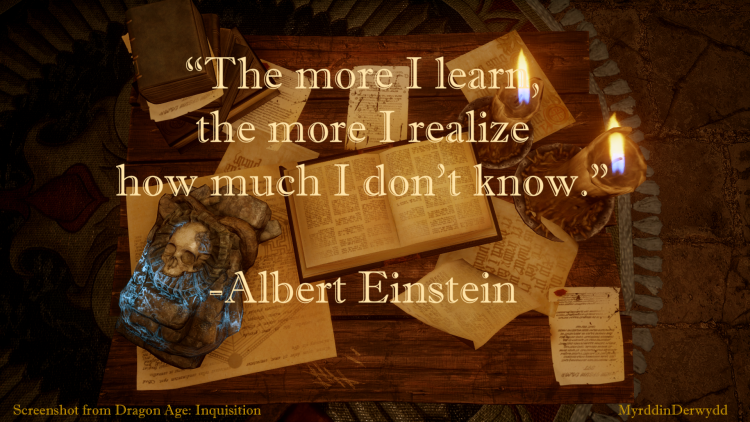Can you ever answer an unasked question?
Allow yourself to admit that you need more time to answer, instead of stopping questions in their tracks.
Although it might seem most valuable (and good for your ego) to have a ready answer to every question, it’s basically impossible to know everything. By giving an answer that isn’t well-grounded in reality or is blatantly wrong, you actually risk others losing more confidence in your ability to teach, learn, lead, or follow, than if you simply admitted your ignorance. Same principle follows regarding admitting when you’re wrong.

- Does a bad decision have potentially harmful consequences?
- Are you excluding better options?
- How do your actions affect others’ perception of you?
- Is someone else relying on your statement’s accuracy?
We live in a golden age of information, with thousands – nay, millions – of free resources at our literal fingertips. As a professor, I would rather you learn the skills to find reliable answers than have you blindly follow the swift and volatile statements of the masses. Consider these questions below, along with applying basic principles of information literacy and pseudoscience analysis. (‘Cause I’m a student, that’s why.)
- Is the answer you hear one that makes logical sense?
- Does your source have an ulterior motive for providing the information?
- Would this answer be likely to change if one aspect of it were actually false?
- Are there many widely varying versions of this “correct answer?”
featured image: gold-tipped bottlebrush (Melaleuca polandii) in Armstrong’s International Garden (Feb 2017)
Advertisements Thanks for Sharing!




